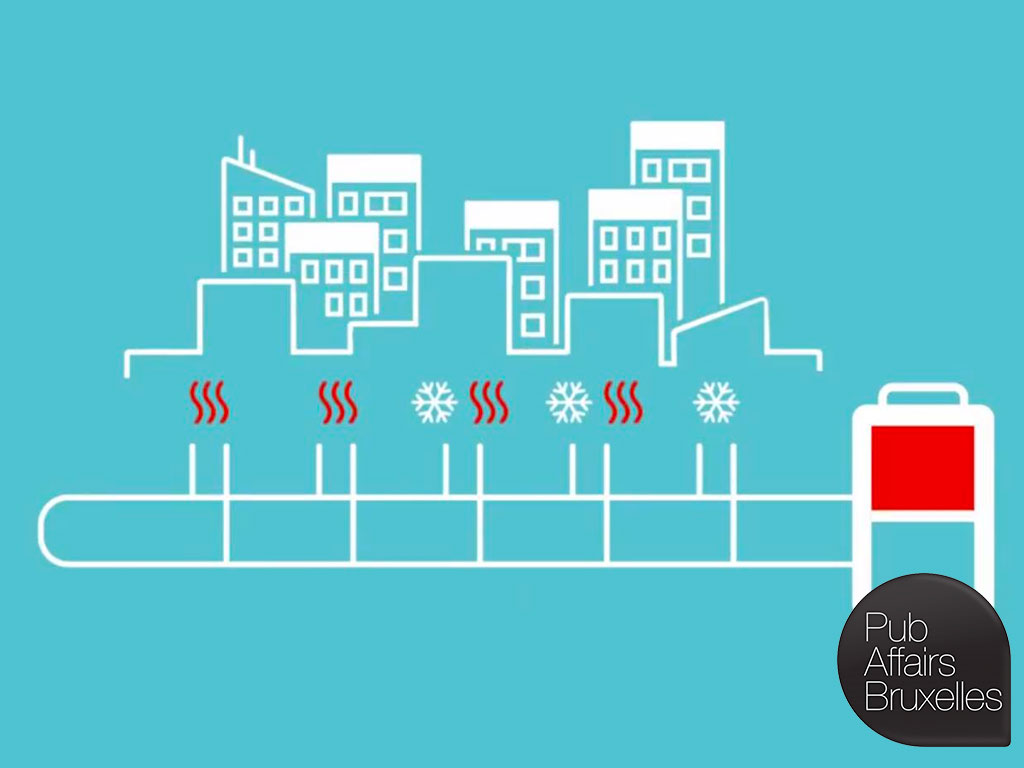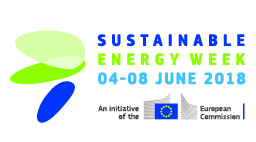We are most pleased to invite you to participate in an evening of discussion on whether a more integrated energy system is the answer to the challenge of decarbonising Europe’s cities with our distinguished speakers
- Ms Andreea Strachinescu, Head of Unit, New energy technologies, innovation and clean coal, DG Energy, European Commission;
- Mr Thomas Nowak, Secretary General, EHPA;
- Mr Ingo Wagner, Policy Manager, Euroheat & Power;
- Mr Peter Remmen, Team Leader, Institute for Energy Efficient Buildings and Indoor Climate, Aachen University;
- Mr Fredrik Rosenqvist, Director Innovation, E.ON.
The debate will be moderated by Hughes Belin, freelance journalist.
This event is kindly sponsored by
Within the framework of the
About the debate
50% of the world’s population lives in cities. In the EU, that figure is even higher and demographic data suggests that this trend will continue to grow in the coming years. Meanwhile, the EU’s global leadership in finalising the Paris Agreement sets a higher ambition which must be met with a will to deliver. But what happens when these two phenomena – urbanisation and decarbonisation – collide? Millions more people will be living in cities in the coming years. Millions of people who will need clean, secure and affordable energy to heat their homes, power their cars and light their cities.
Experts already agree that there are enough thermal energy flows generated by human activity to provide the base for heating and cooling an entire city. In fact, it is possible to use and reuse all available thermal energy to decrease pollution and energy consumption.
As such, electricity, heat and transport can no longer be viewed as three separate sectors. They need to be integrated – working together to produce greater results. However, as the need for greater integration becomes more apparent and imperative, our energy systems’ reliance on non-integrated approaches to production, distribution and consumption is only growing.
The EU has gone someway in reshaping European energy policy to meet demand. The Energy Performance of Buildings Directive is encouraging member states to focus on measures that exploit the potential of heating and cooling for energy saving, while the upcoming Gas Directive specifically seeks to boost sector coupling.
Moreover, there are technologies in-play today that connect buildings with different needs and balance residual thermal energy flows between them, such as E.ON’s ectogrid.
It is clear that meeting our Paris targets will require more than a passing reference to sectoral integration. In fact, it could be the most important phase for our cities. We thus need to ask: is Europe ready? Does the EU have the right policies? Does it provide the right support for innovation?
In short, is a more integrated energy system the answer to the challenge of decarbonising Europe’s cities?
This event will be held under the Chatham House Rule. Participants are free to use the information received but neither the identity nor the affiliation of the attendees may be revealed. For this reason, unless explicitly authorised by PubAffairs Bruxelles, the filming and/or the recording of the event by any means are strictly forbidden.
The event will commence with a welcome drink at 7h00 pm, followed by a panel debate at 7.30 pm. After the panel debate there will be an opportunity for questions and discussions.
We look forward to seeing you at 7h00 pm on the 5th of June at the premises of The Office, rue d’Arlon 80, 1040, Brussels.
All our debates are followed by a drink in a convivial atmosphere.



